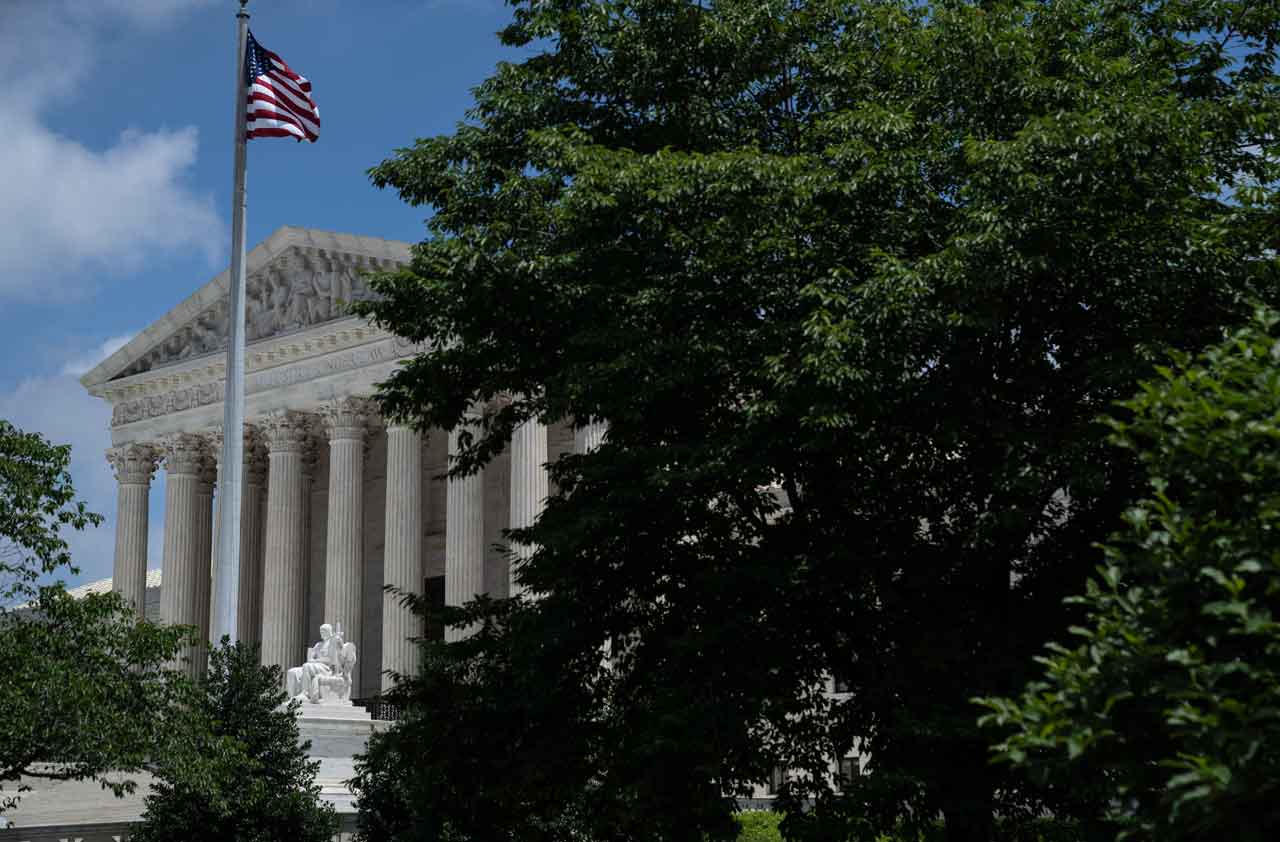Profit and prosper with the best of Kiplinger's advice on investing, taxes, retirement, personal finance and much more. Delivered daily. Enter your email in the box and click Sign Me Up.
You are now subscribed
Your newsletter sign-up was successful
Want to add more newsletters?

Delivered daily
Kiplinger Today
Profit and prosper with the best of Kiplinger's advice on investing, taxes, retirement, personal finance and much more delivered daily. Smart money moves start here.

Sent five days a week
Kiplinger A Step Ahead
Get practical help to make better financial decisions in your everyday life, from spending to savings on top deals.

Delivered daily
Kiplinger Closing Bell
Get today's biggest financial and investing headlines delivered to your inbox every day the U.S. stock market is open.

Sent twice a week
Kiplinger Adviser Intel
Financial pros across the country share best practices and fresh tactics to preserve and grow your wealth.

Delivered weekly
Kiplinger Tax Tips
Trim your federal and state tax bills with practical tax-planning and tax-cutting strategies.

Sent twice a week
Kiplinger Retirement Tips
Your twice-a-week guide to planning and enjoying a financially secure and richly rewarding retirement

Sent bimonthly.
Kiplinger Adviser Angle
Insights for advisers, wealth managers and other financial professionals.

Sent twice a week
Kiplinger Investing Weekly
Your twice-a-week roundup of promising stocks, funds, companies and industries you should consider, ones you should avoid, and why.

Sent weekly for six weeks
Kiplinger Invest for Retirement
Your step-by-step six-part series on how to invest for retirement, from devising a successful strategy to exactly which investments to choose.
Don’t expect the White House and Congress to tackle the federal budget problem soon after Election Day, no matter who wins the White House.
The conventional wisdom is that although there won’t be any action on the budget until after the November election, Congress will have to do something in a postelection lame-duck session next fall or early in 2013. Otherwise, deep and automatic spending cuts are due to take effect next year.
SEE ALSO: 7 Ways to Fix the Economy
From just $107.88 $24.99 for Kiplinger Personal Finance
Become a smarter, better informed investor. Subscribe from just $107.88 $24.99, plus get up to 4 Special Issues

Sign up for Kiplinger’s Free Newsletters
Profit and prosper with the best of expert advice on investing, taxes, retirement, personal finance and more - straight to your e-mail.
Profit and prosper with the best of expert advice - straight to your e-mail.
But the two parties are so far apart that there’s little prospect for a budget compromise, barring a landslide victory for one side that right now looks beyond reach. Even if Republicans win the presidency and both houses of Congress -- which still seems unlikely -- Democrats will have enough seats in the Senate to block major spending cuts or tax reduction bills.
The problems will become more difficult to solve as time goes on and costs mount each year. Budget experts from both parties warn that the point at which small fixes will still do the job is rapidly passing by. And costs for financing government borrowing will mushroom as interest rates begin to rise again, widening the gap even further.
Moreover, the tax-cutting plans of all three major GOP presidential candidates would pare revenues sharply over the next several years, potentially widening the budget deficit, unless the economy rebounds sharply. Obama’s proposed “millionaire’s tax” wouldn’t do much to close the gap, either. Most analysts give these plans little prospect of passage anyway.
The dim prospects shouldn’t be a surprise. Previous efforts to force Congress to put its budgetary house in order have failed. In 1974 it created the House and Senate budget committees, which were supposed to bring order to the budget process, but lawmakers soon found ways to circumvent them. Eleven years later, Congress passed the Gramm-Rudman-Hollings Act, which sought to put teeth into its rules by mandating automatic spending cuts if lawmakers didn’t meet budget targets. The White House and Congress similarly devised maneuvers to render those rules meaningless. In the early 1990s, there was a series of bipartisan budget deals, but they didn’t cut deeply enough.
The closest the government came to budget making success was in the late 1990s, when a combination of smaller spending increases and a booming economy brought the budget into the black, and raised prospects of continued surpluses for years. But the economy fell into a recession and Washington cut taxes and boosted spending, bringing big deficits back.
How to put fiscal policy back on track isn’t a mystery. Dozens of blue ribbon commissions and think tank reports have laid out credible proposals, almost all of them involving spending cuts and higher taxes. But none of the plans have gained any traction. As Robert Reischauer, former director of the Congressional Budget Office, says, even the most sensible solutions are “easy to demagogue.”
There still are some parts of the budget problem that can be fixed with modest tinkering. Lawmakers could put Social Security back on solid footing by raising the retirement age for future seniors, increasing the payroll tax slightly, and trimming benefits for future retirees who have earned high salaries while they’ve been working.
The budget problem needn’t require across-the-board spending cuts to fix, Alan Blinder, former Federal Reserve vice chairman, pointed out in a Wall Street Journal op-ed piece January 19. Take steps to rein in the soaring costs of the Medicare and Medicaid programs, and the bulk of the problem is solved, Blinder says.
But Congress is unlikely to touch those programs, and it hasn’t yet begun to consider ways to trim the outlay for other growing entitlement programs. Democrats have refused even the most sensible reductions in benefits. Republicans are equally adamant in opposing higher taxes, even though taxes are low in historical terms.
The past year’s much-ballyhooed voter backlash against Congress isn’t likely to spur lawmakers to serious action. Although many Americans say they support the tea party’s demand that the budget deficit be reduced, they’re sharply divided over which federal programs to cut. So the pressure is relieved.
Indeed, polls show that a large proportion of voters hold misguided notions about how much the government spends on major programs. Most think America is spending far more on foreign aid than it is, and that huge sums can be saved by cracking down on waste, fraud and abuse.
The large spending cuts that are scheduled to start automatically in 2013 aren’t written in stone. Lawmakers still will have time after the election to find ways to get around them, or simply could vote to revise the mandates. Many of the spending and tax changes are due to take place in several years, so decisions on the biggest cuts could be in late 2013 or beyond.
That means it’s still a good bet that lawmakers will find a way to kick the budget can down the road again. At best, that means postponing any effort to revamp Medicare and other entitlement programs that are the biggest threat to the budget. The United States still can’t achieve a rational fiscal policy, and probably won’t be able to for years.
So far, Washington’s failure to fix the budget problem hasn’t put the nation into any financial danger. Despite the hullabaloo last spring -- and the downgrading of America’s credit rating -- foreigners are still willing to buy Treasury securities. The budget dilemma is a long-term problem. Washington isn’t really on the verge of default.
But the budget picture is deteriorating, and the opportunity to put the nation’s fiscal house in order by making relatively modest changes early is being squandered. The uncertainty is undoubtedly deterring expansion and hiring by businesses and hurting consumer confidence. Unfortunately, those bad effects will continue.
Profit and prosper with the best of Kiplinger's advice on investing, taxes, retirement, personal finance and much more. Delivered daily. Enter your email in the box and click Sign Me Up.

-
 How Much It Costs to Host a Super Bowl Party in 2026
How Much It Costs to Host a Super Bowl Party in 2026Hosting a Super Bowl party in 2026 could cost you. Here's a breakdown of food, drink and entertainment costs — plus ways to save.
-
 3 Reasons to Use a 5-Year CD As You Approach Retirement
3 Reasons to Use a 5-Year CD As You Approach RetirementA five-year CD can help you reach other milestones as you approach retirement.
-
 Your Adult Kids Are Doing Fine. Is It Time To Spend Some of Their Inheritance?
Your Adult Kids Are Doing Fine. Is It Time To Spend Some of Their Inheritance?If your kids are successful, do they need an inheritance? Ask yourself these four questions before passing down another dollar.
-
 U.S. Manufacturing Is Already Ailing from Coronavirus
U.S. Manufacturing Is Already Ailing from CoronavirusEconomic Forecasts Supplies are hard to come by, and in the longer-term demand may be at risk.
-
 Will You Have to Pay More Sales Taxes on Your Online Purchases?
Will You Have to Pay More Sales Taxes on Your Online Purchases?business One thing’s for sure: Consumers who live in one of the five states without a sales tax won’t be affected by the Supreme Court’s ruling.
-
 What to Expect From the New Fed Chief
What to Expect From the New Fed ChiefEconomic Forecasts By and large, Jerome Powell will move along the path set by his predecessor.
-
 How a Border Tax Would Affect You
How a Border Tax Would Affect YouBusiness Costs & Regulation A plan to limit imports could raise prices but also create more jobs.
-
 A Housing Shortage Looms: Builders Can’t Keep Up
A Housing Shortage Looms: Builders Can’t Keep Upbusiness Starter homes especially are becoming scarce.
-
 Help Wanted in America: Skilled Workers
Help Wanted in America: Skilled WorkersTechnology In an ever-more-competitive job market, technology increases the need for skilled workers.
-
 The Unintended Consequences of a Boost in Overtime Pay
The Unintended Consequences of a Boost in Overtime PayBusiness Costs & Regulation New rules mean millions more employees will be overtime-eligible. But will employers find workarounds?
-
 U.S. Economy to Perk Up in Second Half
U.S. Economy to Perk Up in Second HalfEconomic Forecasts Consumers are recovering from a swoon induced by a wobbly stock market. But energy, other sectors will continue to struggle.
